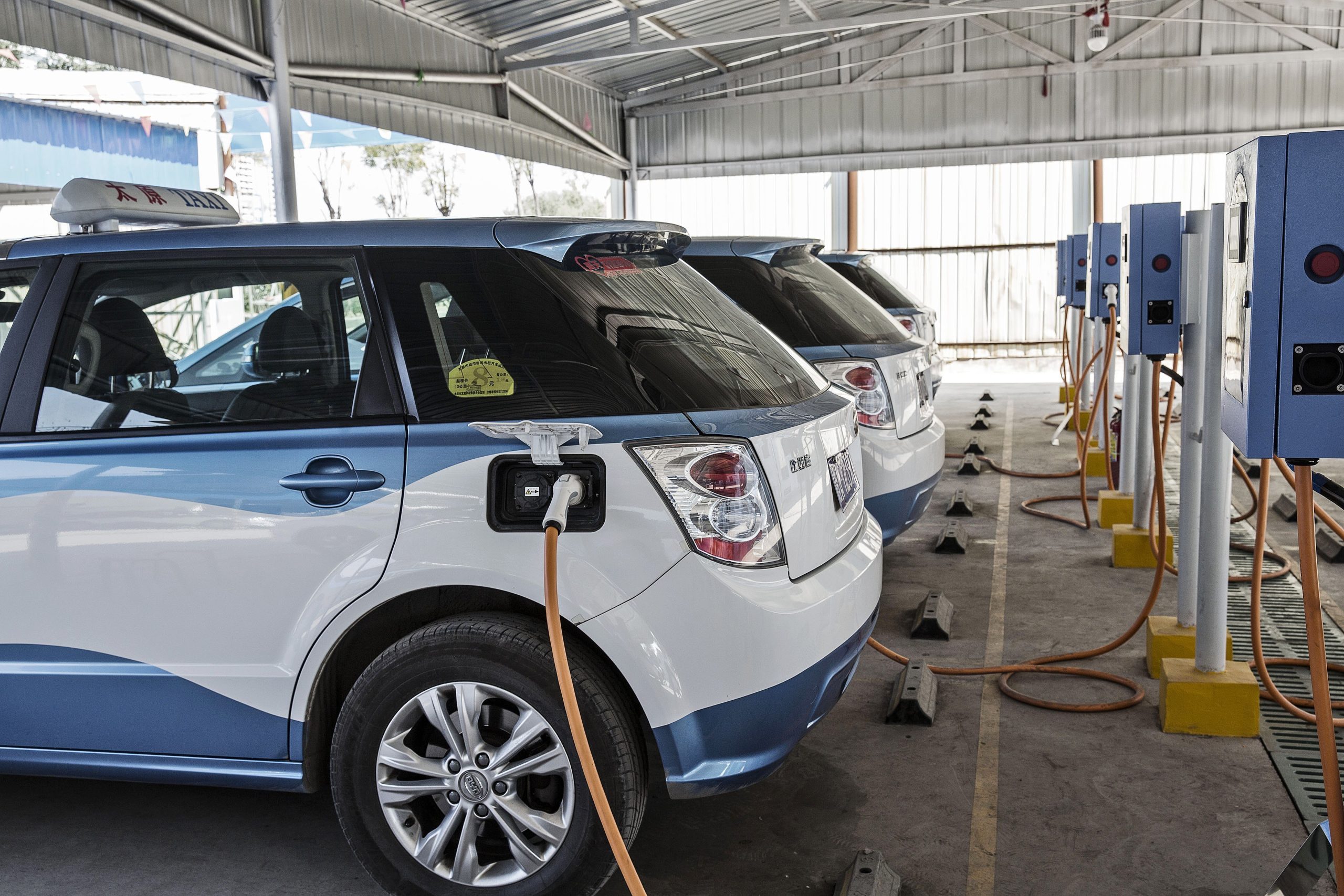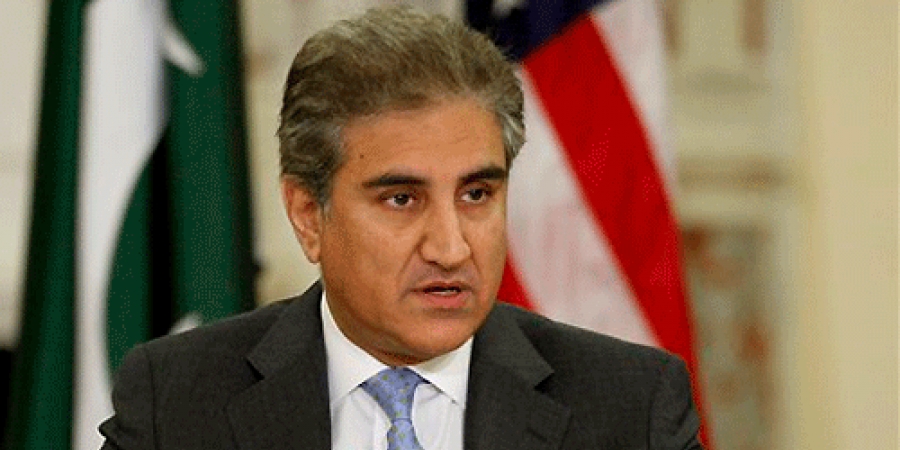US President Donald Trump on Friday, lambasted India for its high pollution indicators and worsening air pollution and other climate change factors.
In a statement United States President Donald Trump during the final presidential debate against rival Democratic Presidential Candidate and formal US Vice-President Joe Biden, lambasted several country for their worsening climate and weather conditions due to pollution.
“Look at India, its filthy”, remarked US President Donald Trump while highlighting the country’s worsening air pollution.
The development comes as New Delhi’s air quality was termed ‘severe’ as the PM2.5 and PM10 particles in capital’s air were found between 282 and 446 – whereas the ‘good’ levels of PM2.5 and PM10 levels are from 0 to 50.
India – a threat to global climate
India has emerged as a country which poses significant threat to the world’s climate due to its severely high pollution indicators.
PM2.5 levels in New Delhi have fluctuated around 180-300 micrograms per cubic meter in recent weeks – 12 times higher than the WHO’s safe limits.
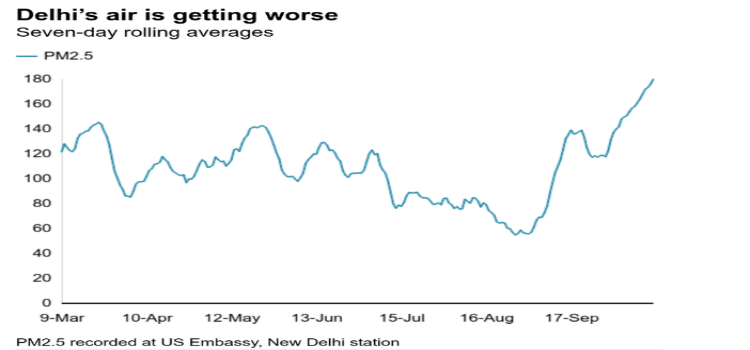
The ‘world’s largest democracy’ hosts six cities of the 10 most polluted cities in the world as air pollution alone kills 1.25 million people in India each year.
Ghaziabad, New Delhi, Noida, Gurugram, Greater Noida and Bandwari are amongst the world’s 10-most polluted cities.
India’s ‘choking’ atmosphere
According to a The State of Global Air 2020 study report published in Health Effects Institute, 116,000 infants die in India in the first month alone – of which half of the casualties are caused by air pollution.
Around 6.7 million people die of air pollution across the world per year, of which 1.67 million die in India alone.
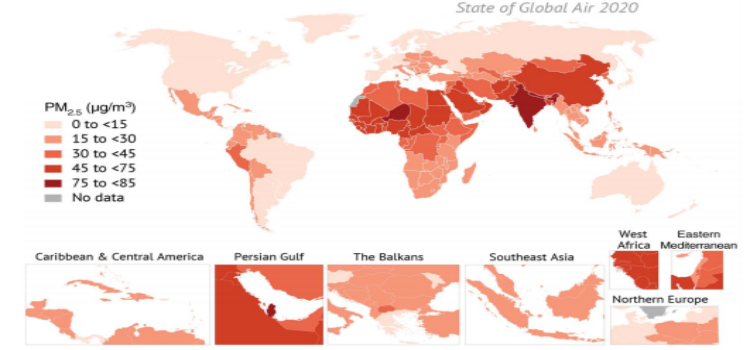
Shekhar Gupta – a veteran Indian journalist, seemingly agrees with US President Donald Trump’s remarks regarding air pollution in India.
“Every year about 15 of the 20 cities with the filthiest air in the world are in India,” he tweeted.
Gupta also highlighted that India is doing little to address the worsening climate change situation and pollution issues.
Our air is an awful global embarrassment, he added.
The highest age-standardized rates of death attributable to ozone occurred in countries in Asia — in particular, India (18/100,000, 95% UI: 8.9 to 28), added the State of Global Air 2020 report.
According to a report prepared by Pune-based Indian Institute of Tropical Meteorology (IITM), India’s average temperature has risen by around 0.7 degrees Celsius during 1901–2018.
The report predicts that that unless steps are taken, between 2070 and 2099 average temperature over India will rise by approximately 4.4 degrees.
India’s delusions and indolent approach towards climate change
India’s approach towards addressing climate change issues has nothing more than mere lip service as New Delhi has essentially been fixated on ‘economic growth and development’.
Economic growth and development but at what cost, India’s imprudent attitude towards climate change and global warming does on only poses a serious threat to its own population but to that of its neighbors as well.
Past few years have shown that Stubble burning in India has resulted in severe smog in Pakistani territory along the Indo-Pak border.
Lahore, Faisalabad are amongst the Pakistani cities that have been subjected to severe smog due to India’s failure to implement necessary measures to tackle climate change and air pollution specifically.
What India can learn from Pakistan
Though an unlikely possibility, India must learn from Pakistan for its internationally recognized, acknowledged and appraised efforts regarding tackling issues pertaining to climate change.
Pakistan’s Billion Tree Tsunami project for reforestation has garnered international praise and acclaim.
The project was launched in 2014, by the government of Khyber Pakhtunkhwa (KPK), Pakistan, as a response to the challenge of global warming. Pakistan’s Billion Tree Tsunami restores 350,000 hectares of forests and degraded land to surpass its Bonn Challenge commitment.
The project aimed at improving the ecosystems of classified forests, as well as privately owned waste and farm lands, and therefore entails working in close collaboration with concerned communities and stakeholders to ensure their meaningful participation through effectuating project promotion and extension services. The projected was completed in August 2017, ahead of schedule.
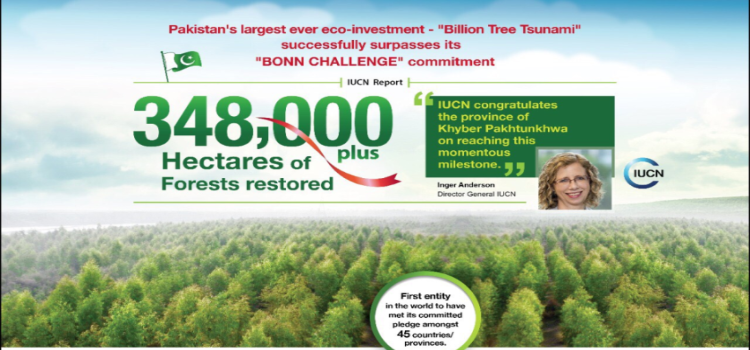
Following the success of the project, PM Imran Khan on September 3rd 2018, launched a 5-year, country-wide 10 billion tree plantation drive to tackle climate change and global warming issues faced by the country.
Pakistan in July 2020, achieved significant milestone of the United Nations Sustainable Development goal (SDG) 13, ten years before deadline of 2030.
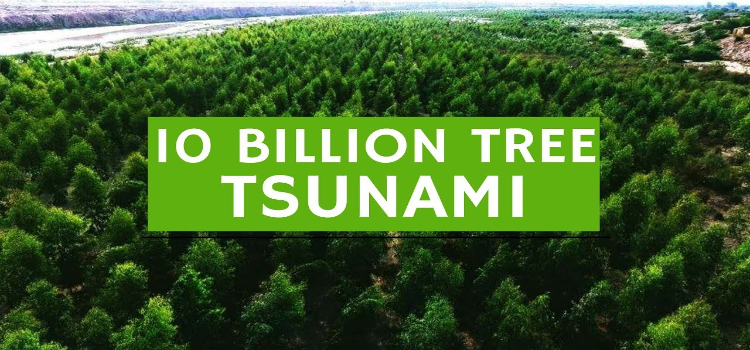
By achieving the Climate Action SDG 13, Pakistan has proved that it is committed to global efforts against the challenge of climate change to protect life on planet earth.












